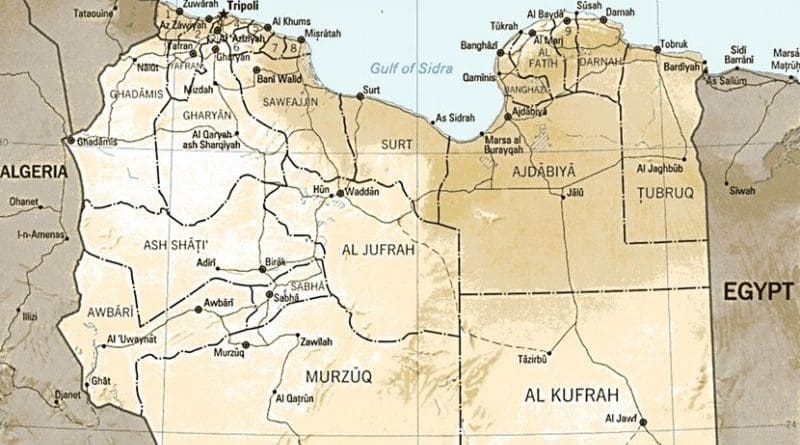Libya To Get New UN Resolution
By VOR
By Garibov Konstantin
France and Britain intend to submit changes to the UN Security Council resolution on Libya. They push for unfreezing Libya’s bank assets, lifting the arms embargo and canceling the no-fly zone over the Libyan airspace. The French President Nicolas Sarkozy and British Prime Minister David Cameron unveiled their initiative after visiting Tripoli on Thursday.
Russia has backed the proposed lifting of the no-fly zone and called for removing a ban on small arms supplies to Libya to protect UN personnel, diplomats and humanitarian staff and writing this into the UN Security Council resolution.
As for the arms embargo, the essence of the French-British proposal is pretty vague with analysts saying that it might clash with the opinion of Moscow and Beijing amid growing fears that weapons from Muammar Gaddafi’s arsenals fell into the hands of Islamists and Al Qaeda militants in Maghreb countries.
Unprecedented security measures surrounded Nicolas Sarkozy’s and David Cameron’s visits to Tripoli and Benghazi in a show of political and moral support for the rebel National Transitional Council. Although not yet controlling the whole of Libya, the rebels will nevertheless represent their country at the UN General Assembly next week. On the other hand, Paris and London need assurances that Libya’s new authorities are unconditional loyal to the West.
Vladimir Isayev, a senior analyst with the Institute of Oriental Studies in Moscow, gives his view:
“While Americans played an auxiliary role, France and Britain were the initiators and inspirers of Colonel Gaddafi’s ouster. They drafted and pushed through the UN Security Council the resolution that helped NATO forces to bomb the Libyan regime out. Naturally, the case in point now is to strengthen positions. Libya faces a postwar rebuild it can hardly cope with unless helped by France and Britain. Libya has energy resources and is able to pay for the aid it is hoping to receive.”
At a joint press conference in Tripoli, Nicolas Sarkozy refuted allegations that member states of the anti-Gaddafi coalition were demanding economic benefits in exchange for their services in deposing Gaddafi. The National Transition Council denied the existence of any economic agreements with London or Paris. Meanwhile, European deputy Andrew Brons claims that a secret $1-billion deal was signed between the governing body of the Libyan rebels and the London-based Vitol oil trader.
“One does not have to be sympathetic towards the despicable tyrant Colonel Gaddafi to be sceptical about the West’s motives for support of the rebels in that country,” deputy Brons said during a session of the European Parliament on Wednesday.
Sarkozy and Cameron pledged to continue to unfreeze Gaddafi’s assets to help Libya’s new government. But they are unlikely to move beyond that, says Andrei Volodin, an expert with the Diplomatic Academy of the Russian Foreign Ministry.
“Politics is an extremely volatile thing. What looks like a victory now may turn out to be a defeat tomorrow. What may happen is that France and Britain may lose the initiative on the economic front. France is a step away from default. Britain too has its economic woes. That’s why I would not exaggerate the role of France and Britain in restoring peace in Libya. To my mind, the positions of China, Germany and Egypt are of greater significance for Libya’s future.”
On Thursday, Egypt’s Foreign Minister Mohamed Kamel Amr and Labor Minister Ahmed Al-Borai held talks with the National Transitional Council in Tripoli, becoming the first high-ranking officials of an Arab country to visit Libya after the fall of the Gaddafi regime. Turkish Prime Minister Tayyip Erdogan is also in Libya now. Positioning itself as a new center of gravity in the region, Turkey may attempt to seize the initiative from the West.
The rebels, meanwhile, continue to storm Sirte, Colonel Gaddafi’s native city and one of the last remaining strongholds of his supporters. Rebel forces claim they are already inside Sirte. But the Al Jazeera television reports that Sirte defenders refuse to surrender and are offering fierce resistance.

